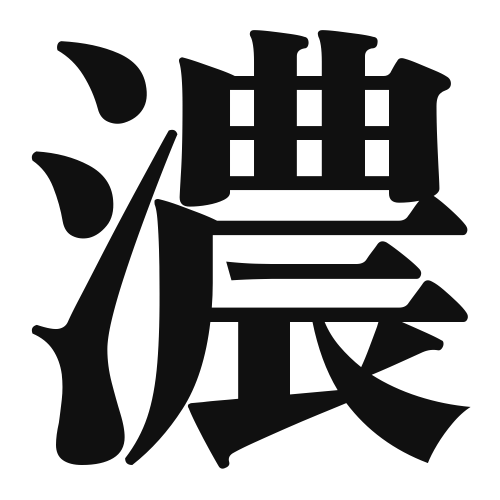1. Overview of Meaning
The kanji “濃” (pronounced “nō” in Japanese) means “thick,” “dense,” or “deep.” It is often used to describe the richness of colors, flavors, or even emotions.
2. Formation and Radical
Formation of the Kanji: The kanji “濃” is a phonetic compound (形声文字) that combines the water radical (氵) with the character “農” (nō), which relates to agriculture. This combination suggests the idea of something being thick or rich in a watery context.
Radical: The radical of “濃” is the water radical (氵), indicating its connection to liquids and fluidity.
3. Examples of Usage
Common Words and Phrases:
- 濃い (こい, koi) – thick, dark (used for colors or flavors)
- 濃厚 (のうこう, nōkō) – rich, dense (often used for flavors or aromas)
Example Sentences in Daily Conversation:
- このスープはとても濃いです。 (This soup is very thick.)
- 彼の感情は濃厚です。 (His emotions are deep.)
4. Synonyms and Antonyms
Similar Kanji:
- 濃厚 (のうこう, nōkō) – rich, dense (often used in culinary contexts)
- 濃い (こい, koi) – thick, dark (used for colors or flavors)
Antonyms:
- 薄い (うすい, usui) – thin, light (used for colors or flavors)
5. Cultural and Historical Background
Connection to Japanese Culture: The concept of “濃” is significant in Japanese aesthetics, particularly in art and cuisine, where richness and depth are often valued.
Proverbs and Idioms:
- 濃い味 (こいあじ, koi aji) – strong flavor, often used to describe food that is rich in taste.
